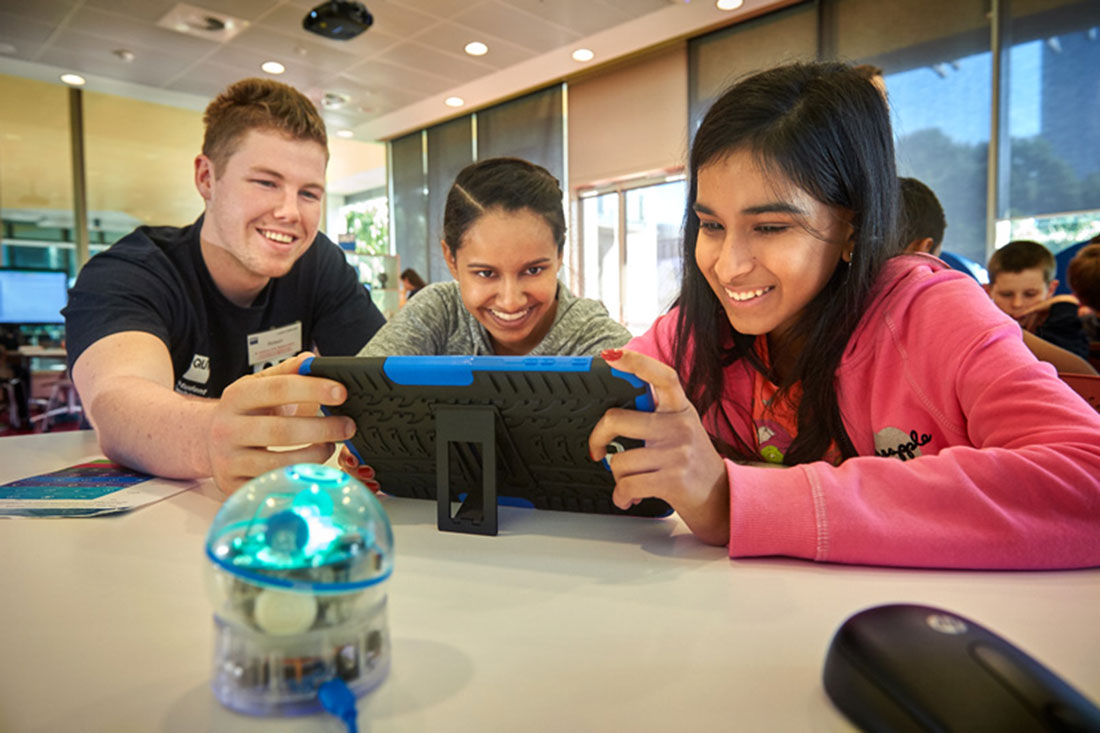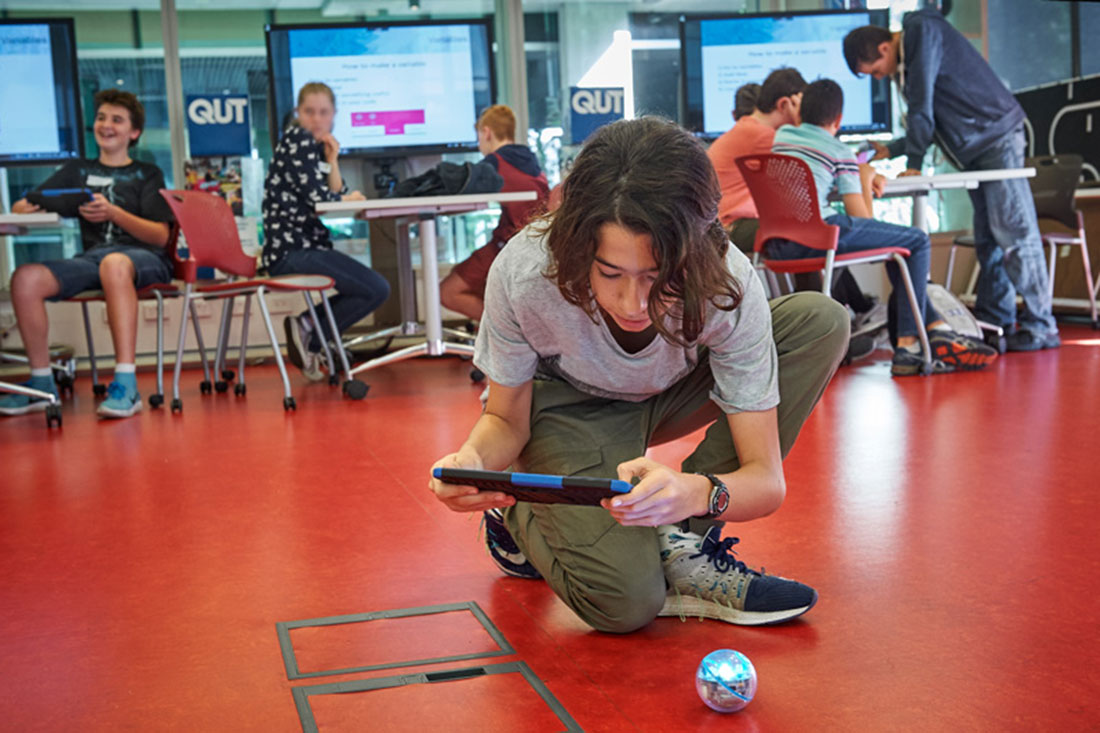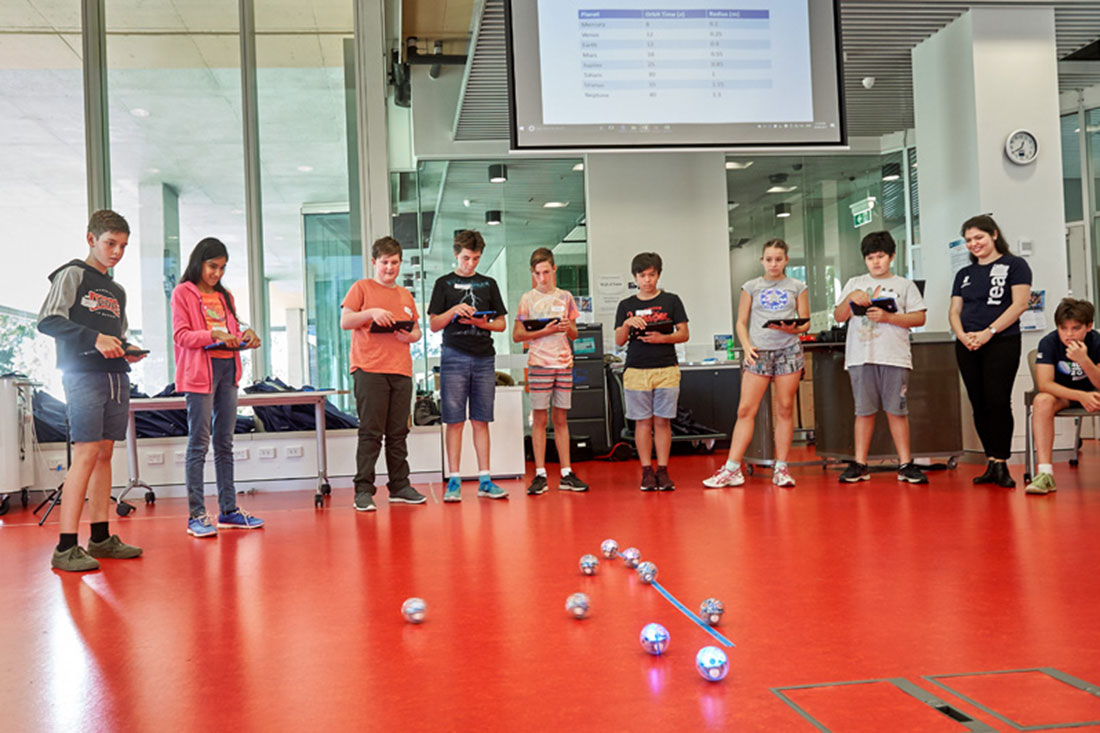Workshop overview
|
Year level
|
7-10
|
|
Capacity
| 16-32 students. If you want to bring more students, email highschool.workshops@qut.edu.au |
|
When
|
School days: Monday-Friday
|
|
Duration
|
Half day
|
|
Where
|
QUT Gardens Point, Science and Engineering Centre
|
|
Cost
| Free (Late cancellation fees apply. Please see terms and conditions). |
Workshop details
Students work together to create an orbiting robotic solar system using Sphero robots in this exciting introduction to coding.
Students will learn about solar systems, investigate the relationships between planet mass, orbit, orbital speed, and distance from the sun. They will learn the basic principles of programming using Sphero's drag and drop interface, calculate orbital circumferences and then design and model a robotic solar system that reflects Kepler's three laws of satellite motion.
Topics covered in this workshop:
- robotics
- mathematics
- technology
- astrophysics.


